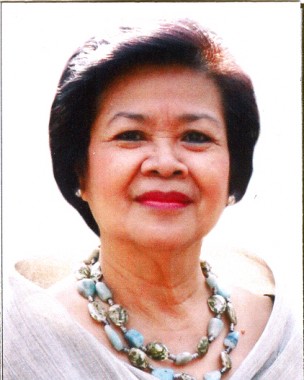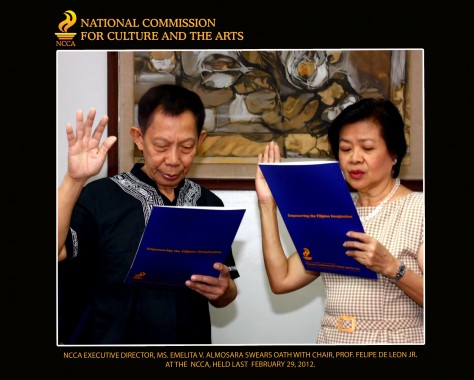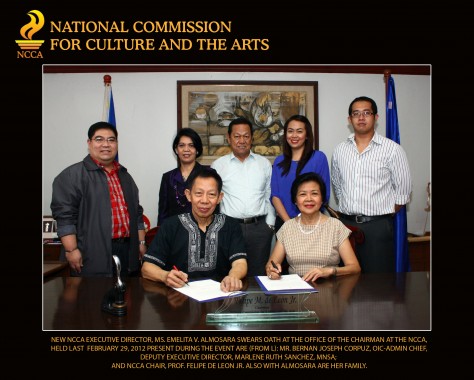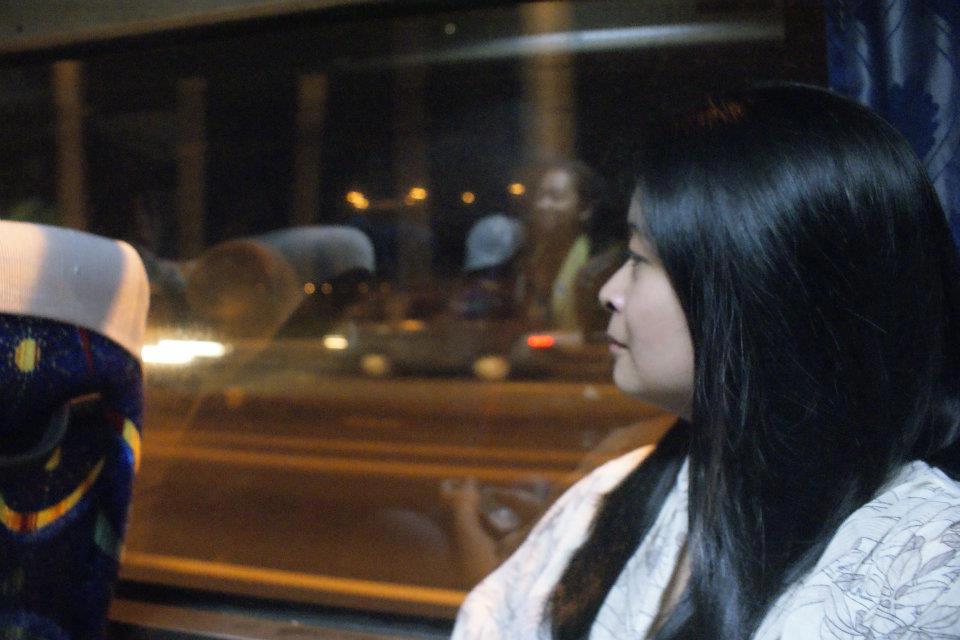The National Commission for Culture and the Arts (NCCA) welcomes its new executive director Emelita V. Almosara.
Malacañan Palace announced the appointment of Almosara on January 22, 2012, leading the list of appointees that included officials for the Department of Foreign Affairs, Department of Social Welfare and Development, Department of Labor and Employment and Department of the Interior and Local Government.
Almosara left her post as the deputy executive director of the National Historical Commission of the Philippines (NHCP), an attached agency of the NCCA, to lead the premiere arts and culture agency of the government starting March 1.
“After 36 years in government service, any ordinary person would be ready to retire into the quiet of home and family life. But, thank God, not Mely. For she isn’t some ordinary person,” said Dr. Maria Serena I. Diokno, chair of the NHCP, in a tribute to Almosara in February 28, 2012.
Almosara’s 36 years in government service are primarily focused in the areas of management and operations of public historic rites and structures, museum work, and human resource management. She joined the NHCP (then National Historical Institute) in 1975, rising from the ranks to serve as Deputy Executive Director II for 16 years. She also became acting executive director and officer in charge for several occasions, equipping her with executive skills in running a government cultural agency.
“She has steadily climbed the hierarchal ladder, brick by brick by a mixture of integrity, sense of modesty, extraordinary patience, sheer hard work, and inborn instinct for right performance, and untarnished or untainted achievements,” attested Dr. Serafin D. Quiason, former chairman of the National Historical Institute. “Her administrative skills and worthy experience in the delicate and arduous discipline of history has been honed in an atmosphere nurtured by Dr. Encarnacion Alzona, Prof. Esteban de Ocampo, Carmen Guerrero Nakpil, Emilio Aguilar Cruz, Prof. Teodoro A. Agoncillo, Fr. Horacio dela Cuesta SJ, Dr. Domingo Abella and Prof. Ambeth Ocampo.”
Dr. Diokno also said: “Mely is an extremely accomplished woman. In her head is embedded an institutional memory shaped by decades of devoted service. She knows the rules, is familiar with persons high and low, and remembers instances with such detail that she puts me to shame. In her heart, she bears the pain and joy of the detail that demands of serving in government, a jumble of misunderstandings and frustrations mixed with more than a fair share of success and recognition.”
Dr. Diokno enumerated the lessons that Almosara’s work and life exemplify: bearing challenges with grace and quiet dignity; never giving up; and grabbing the exciting opportunities, making full use of them and enjoying them.
Almosara was with NHI after a few years teaching in a private school. Before that she graduated with a degree in elementary education in 1969 from the Philippine Normal College (now Philippine Normal University), which named her one of the Ten Outstanding Alumni. She likewise received the National Award for Government Administration from the Philippine Normal University Alumni, Inc. in 2003. Then she obtained her master’s degree in government management in 2001 from the Pamantasan ng Lungsod ng Maynila, where she is currently writing her dissertation for a doctorate degree in public management.
It can be said that most of her life is spent with NHI.
“My mom has been in the NHI, now NHCP, for as long as I can remember. A lot of the major milestones in her life happened while she was with the NHCP—meeting my dad, getting married, buying a house, having her first child, and then her second child, buying the family’s first car, and going on her first trip abroad, among many other things,” said the testimonial written by her daughter Maria Fides V. Almosara and delivered by son John Fiel V. Almosara. “The NHCP has been her second home for over 30 years. It too has become a second home to us, her family. As kids, I remember how Mama would tag us along with her on her trips to visit the various shrines around the country when she was still with the Monuments and Heraldry Division. I especially enjoyed visits to Fort Santiago on Rizal Day, or to the Aguinaldo Shrine on Independence Day…That’s how our mom is. She is always a dedicated worker. She always gave 100 percent to her work, never short-changing the government with the kind of service she gave. But at the same time, she is a wife and mother who always made sure that there was time well spent with the family at all times.”
The children witnessed the character of Almosara through her work with the NHI: “I look up to my mother a lot, especially when it comes to her work ethic. She is one of the most honest, hardworking, intelligent women I know. And these qualities have allowed her to achieve so many wonderful things in her life, whether personally or professionally. She is an amazing woman who manages to do so many different things all at the same time, yet ends up doing all of them well.”
Now, Almosara is opening a new chapter in her life and career as executive director of NCCA. But this is not far removed from her former work. The NHCP is closely affiliated with the NCCA, and she has a long and active involvement with the NCCA, particularly in the field of cultural heritage.
Almosara started when the NCCA was the Presidential Commission for Culture and the Arts (PCCA), assisting then National Historical Institute chairman Dr. Serafin D. Quiason as a member of the transition committee creating the NCCA from 1987 to 1992. For the NCCA, she became a member of the National Committee on Archives from 1988 to 1994; secretary of the National Committee on Monuments and Sites from 1990 to 2001; head of the National Committee on Museums for two terms from 1995 to 2001; alternate vice head of the Subcommission on Cultural Heritage from 1998 to 2001; member of the Executive Council; and member of the National Advisory Board from 1998 to 2001, among others.
As an NCCA official, she represented the agency in international events, eventually becoming a member of the advisory committee of the International Council of Museums (ICOM) from 1996 to 2000; and secretary of the International Committee of Museums Asia-Pacific. Additionally, she was also president of the Philippine Association of Museums from 1992 to 1997; executive secretary of the Philippine History Foundation from 1999 to 2009; and a member of the board of directors of the Society of Filipino Archivists from 1992 to 1994.
Almosara has traveled both here and abroad for trainings and seminars mostly on cultural heritage conservation, management and administration of historic sites and structures, and management of historical relics and memorabilia, as well as to speak or present papers primarily on cultural heritage presentation and museum work.
Almosara is aware of the power of arts and culture, and the agency that upholds and promulgates it.
“Culture and the arts serve as the moving spirit in nation building. They are important components required for any country to progress. As a catalyst, the role of arts and culture is to provide a means to uplift values and social transformation in our society,” she says. “The NCCA is the cultural agency responsible for making policy, coordinating projects and programs, and giving grants for the development, preservation and promotion of culture and the arts. With this mandate, the NCCA takes the lead role in insuring that culture and the arts programs are managed effectively to have impacts in the society with the purpose of enhancing the quality of life of the Filipino people. The NCCA should be able to encourage, inspire and empower the Filipino creativity and imagination.”
With the NCCA and its mandate, Almosara believes that the government is giving adequate attention to the arts and culture: “The programs and projects of these agencies are geared towards the development and promotion of culture and the arts. Government funds are appropriately allocated to make sure that these programs are pursued. However, public awareness of these programs needs to be increased. Even in the local government, arts and culture are given much attention by its officials.”
With the few weeks as executive director of the NCCA, she observes that “to be more effective, there is a need for NCCA management to look into its organizational and operational structures, review its existing policies, and formulate necessary policies to put things in place.”
She adds: “Another concern is the status of employment of the staff, and effective utilization of its human and financial resources. NCCA should also strengthen its network and coordination with other government agencies particularly those in the culture sector to maximize efforts to develop and promote cultural and artistic programs and projects, and to energize community participation in a larger scale.”
“With limited time and with NCCA vision already in place, I just hope to be of help to NCCA in terms of human resource development or capacity building for its employees and effective utilization of its resources, and to facilitate productive relationship or collaboration among the cultural agencies,” Almosara concludes.
For more details on the activities and schedules, contact NCCA Public Affairs and Information Office (PAIO) head, Rene Sanchez Napenas at (632) 527-2192 or 0928-5081057. Log on to www.ncca.gov.ph or email us at [email protected].





